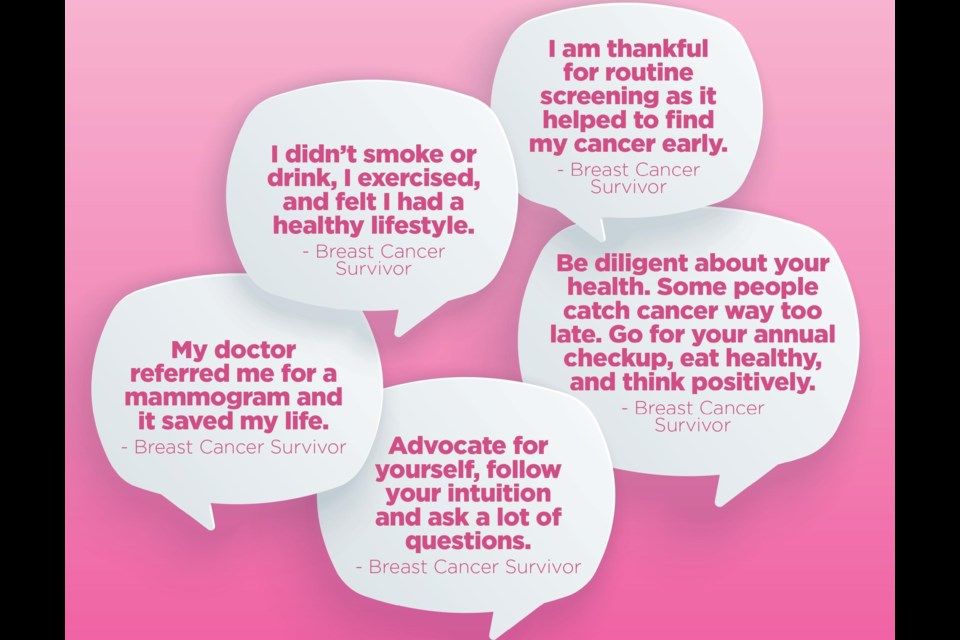THUNDER BAY — The Thunder Bay Regional Health Sciences Centre has launched a new campaign to raise awareness of breast cancer prevention and screening.
The campaign by the hospital's Prevention & Screening Clinical Services features stories from people who have experienced the breast cancer journey either as a patient, an advocate or a supporter.
A common theme of these stories is the need to be diligent about one's health, to be vigilant for any changes in one's breasts and to stay up to date with routine cancer screening appointments.
"Being vulnerable and open helps others to feel safe to do the same. It creates a space for healing," said one cancer survivor who participated in the campaign. "Every cancer story is unique, and it can feel lonely at times. If sharing my story helps one other person going through something similar to feel less alone, then it was worth it."
The campaign rolls out this month, which is Breast Cancer Awareness Month, but will continue running for the remainder of 2022.
The stories can be found on the Screen for Life Coach Northwest and TBRHSC social media pages, and in print.
Dr. Nicole Zavagnin, Regional Primary Care Lead for Cancer Care Ontario at TBRHSC, said it's invaluable for the public and health care providers to hear the accounts of survivors.
Breast cancer is the most common cancer among Northwestern Ontario women, but also has one of the highest survival rates of all cancers.
Early detection offers more treatment options and better outcomes.
"As primary care physicians, our role is to educate patients about early detection and cancer screening options, along with the risks and benefits," Zavagnin said. "We then allow the patient to make the best decision for them in terms of their life values and priorities."
The Ontario Breast Screening Program (OBSP) recommends that most people ages 50 to 74 who are eligible for OBSP get checked with a mammogram every two years.
Individuals aged 30 to 69 who meet the high risk OBSP eligibility criteria should get checked every year with both a mammogram and breast magnetic screening imaging (MRI), or an examination by ultrasound if an MRI is not medically appropriate.
More information is available online.
